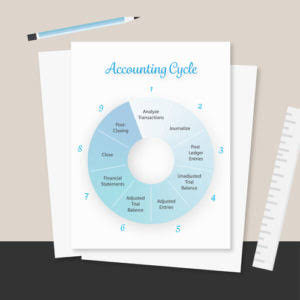
Balancing and monitoring funds regularly involves additional administration, which can be a trivial annoyance in large firms but may impose an extra burden on small businesses. Commercial transactions are progressively cashless — even at small retailers and caf\u00e9s, where purchases customarily have depended vigorously on coins. Marketable debt (bonds) securities with maturities greater than 12 months are classified as long term. A compensating balance is a minimum cash balance in a company’s chequing or savings account as support for a loan borrowed from a bank (or other lending institution).
Distinguishing Between Petty Cash and Cash on Hand
- To set your business up for success with a petty cash fund, you need to take a structured approach.
- To ensure your petty cash fund reflects what it should, regular reconciliation is your lifeline.
- However, it suddenly got a very high-value order but had to supply within a concise time.
- The custodian will be the primary person in the organization responsible for managing the petty cash.
- Petty cash refers to a small amount of money set aside by a business to cover minor expenses that do not require the use of checks or banking services.
- Having all your money tied up in liabilities or long-term investments can make it difficult to liquidate cash fast enough to take advantage of short-term opportunities.
And, you must record a petty cash journal entry when you put money into the petty cash fund and when money leaves the fund. Consider recording petty cash transactions in your books at least once per month. Embracing technology can truly elevate your petty cash handling from good to great. It starts with implementing a petty cash management system that integrates with your wider financial ecosystem, offering seamless workflows and enhanced oversight. Mobile apps can empower custodians to record transactions on the go while providing centralized data access. Automating processes like reconciliations can save precious time and reduce errors.
Definition of Cash Equivalents
Along with a regular cash book, most companies maintain a separate petty cash book to record small and daily expenses like food, fuel, office supplies, electricity, postage, newspaper, travel, etc. The person responsible for recording these transactions is called a petty cash cashier. This is treated as the normal current asset of the company and recorded under the head of current assets in the balance sheet. This $200 petty cash is considered current assets in ABC Ltd’s balance sheet, and we will have to derecognize it when it is used to purchase something. It’s is petty cash a cash equivalent typically classified as a sub-account within the broader cash and cash equivalents category.

How Do You Balance Petty Cash in Accounting?
- That’s why management details each cash activity for the period on the statement of cash flows.
- By maintaining proper controls and a clear reimbursement process, companies can effectively manage petty cash and integrate it seamlessly into their financial systems.
- These assets are considered as good as cash because businesses or individuals can access them quickly when needed.
- For example, the Company classifies its marketable debt (bonds) securities as either short term or long term based on each instrument’s underlying contractual maturity date.
- Yes, petty cash is considered a current asset on a company’s balance sheet.
The cost of securities sold is based on https://www.bookstime.com/articles/fundamental-accounting the specific identification model. To set your business up for success with a petty cash fund, you need to take a structured approach. Begin by appointing a dependable petty cash custodian; they will oversee the fund, ensuring the integrity of petty cash disbursements. This individual is your point person for managing this asset, so trustworthiness is key. Implementing an imprest petty cash system can be advantageous due to its self-balancing feature, meaning it starts with a preset balance and is replenished back up to that amount regularly.

Assets like treasury bills, commercial paper, and some Certificates of Deposits (CDs) are considered cash equivalents. This chapter promises to be a comprehensive exploration of man- aging, understanding, and recording cash in an accounting context. Controlling cash flow and financing is a crucial part of running any business. A business can be profitable and still not be able to pay its bills on time because money was not managed properly.

Cash and Cash Equivalents (CCE): What Wholesale Businesses Need to Know
- Commercial transactions are progressively cashless — even at small retailers and caf\u00e9s, where purchases customarily have depended vigorously on coins.
- However not in a real sense cash, money can be effectively and quickly accessed, which is the reason it’s “close by.”
- Let’s move on to internal controls – how to keep cash from going missing or being stolen.
- It’s essential to address a shortage immediately, as it might indicate funds are less than expected, and similarly, an overage would imply excess funds.
- So that the operations will run smoothly without disturbing the daily routine.
- Schedule a call instantly and learn more about how you can find untapped profit and time savings in your payments process.
Inventory is a special case because it requires operational expenses to be converted into cash. Regular reconciliation and audits are critical for maintaining financial accuracy and preventing fraud. The reconciliation process involves comparing the actual cash in the petty cash box with the balance recorded in your petty cash log. Regular audits, whether internal or external, will help ensure that your petty cash policies and procedures are being followed and will identify any potential weaknesses in your internal controls. The physical nature of cash makes it ideal for immediate, low-value transactions.
PwC refers to the US member firm or one of its subsidiaries or affiliates, and may sometimes refer to the PwC network. This content is for general information purposes only, and should QuickBooks not be used as a substitute for consultation with professional advisors.